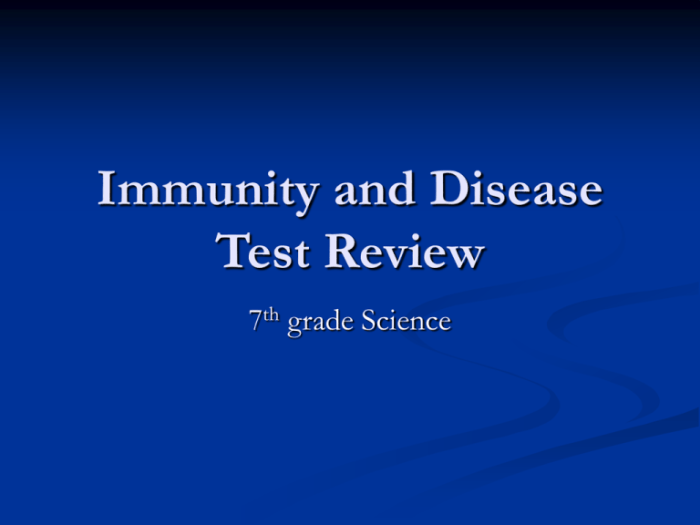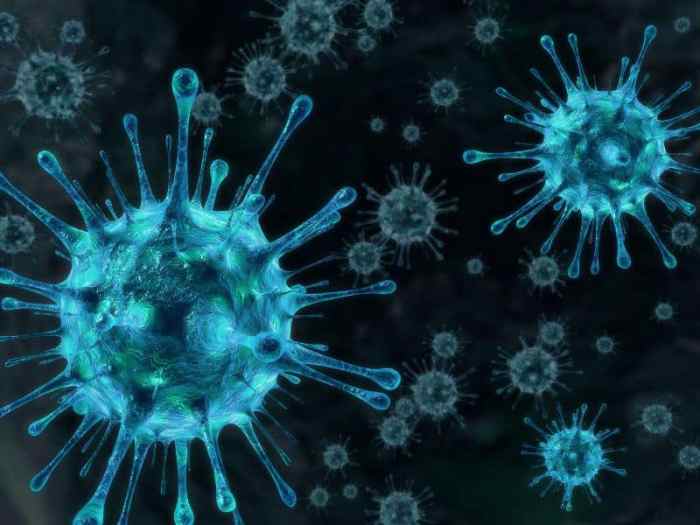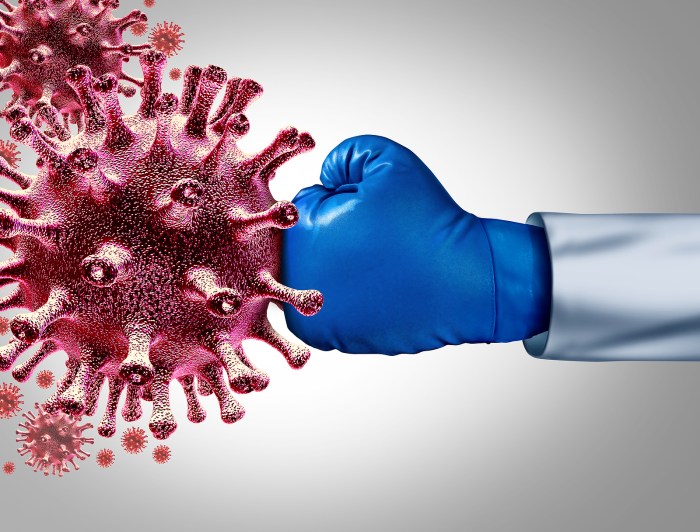Embarking on an exploration of immunity and preventing disease mastery test, this discourse delves into the intricacies of the immune system, its mechanisms, and its applications in healthcare. Unraveling the concepts of innate and adaptive immunity, the discussion elucidates how the body’s defense mechanisms safeguard against infections.
Proceeding further, the discourse examines the components of the immune system, encompassing cells, tissues, and organs, and their collaborative roles in providing immunity. Antibodies, cytokines, and other immune mediators are brought to light, shedding light on their significance in the immune response.
Immunity: An Overview

Immunity is the body’s ability to protect itself from infection and disease. It is a complex system that involves multiple components working together to identify, neutralize, and eliminate foreign invaders, such as bacteria, viruses, and parasites.
There are two main types of immunity: innate immunity and adaptive immunity. Innate immunity is present at birth and provides a rapid but non-specific response to infection. Adaptive immunity, on the other hand, develops over time and provides a more targeted and long-lasting response to specific pathogens.
Immunity plays a crucial role in maintaining our health. It helps us fight off infections, prevent diseases, and recover from illnesses. Without a functioning immune system, we would be highly susceptible to a wide range of diseases.
Components of the Immune System

The immune system is made up of a network of cells, tissues, and organs that work together to protect the body from infection. These components include:
- White blood cells (leukocytes): These cells are responsible for recognizing and destroying foreign invaders.
- Antibodies: Antibodies are proteins that bind to specific antigens, marking them for destruction by other immune cells.
- Cytokines: Cytokines are proteins that help regulate the immune response and communicate between different immune cells.
- Lymphoid organs: Lymphoid organs, such as the spleen and lymph nodes, are sites where immune cells are produced and mature.
All of these components work together to provide the body with a robust and effective defense against infection.
Mechanisms of Disease Prevention

The immune system uses a variety of mechanisms to prevent disease, including:
- Phagocytosis: Phagocytes are cells that engulf and destroy foreign invaders.
- Antigen presentation: Antigen-presenting cells display antigens on their surface, which allows other immune cells to recognize and attack them.
- Antibody production: Antibodies bind to specific antigens, marking them for destruction by other immune cells.
- Complement activation: The complement system is a group of proteins that work together to destroy foreign invaders.
These mechanisms work together to provide the body with a comprehensive defense against infection.
Factors Affecting Immunity

A number of factors can affect immunity, including:
- Age: Immunity tends to decline with age, making older adults more susceptible to infection.
- Genetics: Some people are born with weaker immune systems than others.
- Lifestyle: Factors such as stress, poor nutrition, and lack of sleep can weaken the immune system.
- Medications: Certain medications, such as corticosteroids, can suppress the immune system.
- Diseases: Some diseases, such as HIV/AIDS, can damage the immune system.
It is important to be aware of these factors and take steps to maintain a healthy immune system.
Applications in Healthcare: Immunity And Preventing Disease Mastery Test
Immunology has a wide range of applications in healthcare, including:
- Vaccines: Vaccines are used to prevent infectious diseases by stimulating the immune system to produce antibodies against specific pathogens.
- Immunotherapy: Immunotherapy is a type of cancer treatment that uses the immune system to fight cancer cells.
- Organ transplantation: Immunosuppressant drugs are used to prevent the immune system from rejecting transplanted organs.
- Blood transfusions: Blood transfusions are used to replace blood that has been lost due to injury or illness. Blood transfusions must be carefully matched to the recipient’s blood type to avoid an immune reaction.
Immunology is a rapidly growing field of medicine, and new applications are being developed all the time.
Answers to Common Questions
What is the difference between innate and adaptive immunity?
Innate immunity provides immediate but non-specific defense against pathogens, while adaptive immunity develops over time and targets specific pathogens.
How do vaccines work?
Vaccines stimulate the immune system to produce antibodies against specific pathogens, providing protection against future infections.
What is the role of the lymphatic system in immunity?
The lymphatic system collects and filters pathogens, presenting them to immune cells for recognition and elimination.